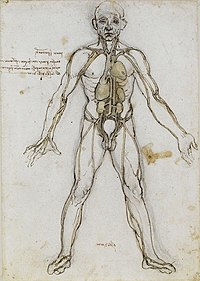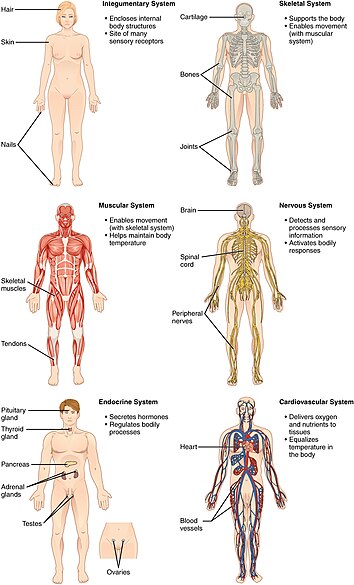List of systems of the human body
 |
| Part of a series of lists about |
| Human anatomy |
|---|

- Clockwise from top left: the integumentary
- skeleta
- nervous
- cardiovascular
- endocrine and muscular systems.

- Clockwise from top left: the lymphatic
- respiratory
- urinary
- reproductive (female
- male) and digestive systems.
The main systems of the human body are:
- Cardiovascular system / Circulatory system:
- Digestive system / Excretory system:
- Mechanical and chemical processes that provide nutrients via the mouth, esophagus, stomach and intestines.
- Eliminates waste from the body.
- Endocrine system:
- Provides chemical communications within the body using hormones.
- Integumentary system/ Exocrine system:
- Skin, hair, nails, sweat and other exocrine glands.
- Lymphatic system / Immune system:
- The system comprising a network of lymphatic vessels that carry a clear fluid called lymph.
- Defends the body against pathogenic viruses that may endanger the body .
- Muscular system
- Enables the body to move using muscles.
- Nervous system:
- Renal system / Urinary system:
- The system where the kidneys filter blood.
- Reproductive system:
- The sex organs required for the production of offspring.
- Respiratory system
- Skeletal system
